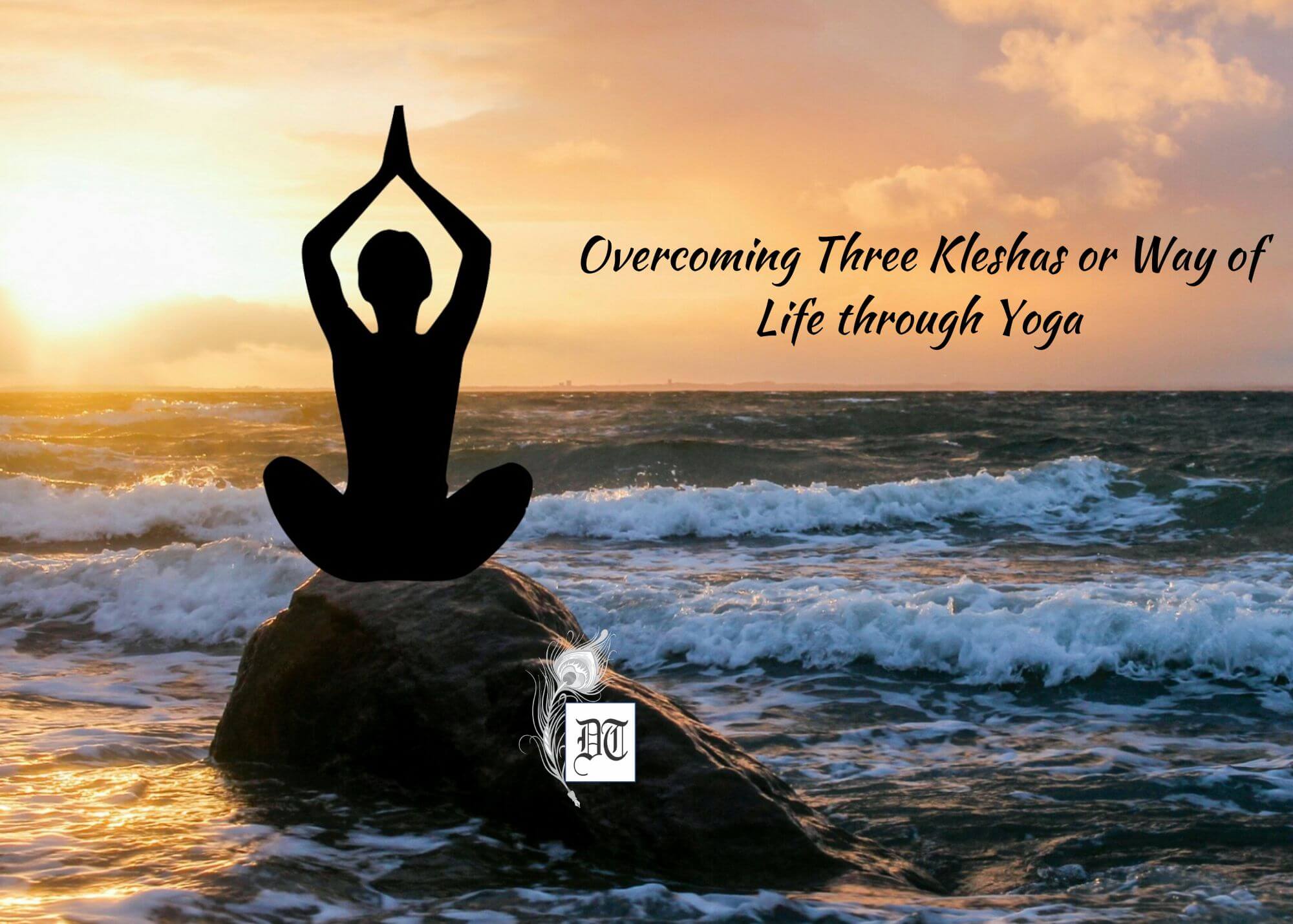Yoga is another word for equanimity, poise, and harmony. Our Associate Editor, Navodita, a Yoga expert, tells us how to face the three Kleshas (way of life), exclusively in Different Truths.
Yoga is about equanimity and poise and harmony. If something is disturbed or in a state of constant flux, yoga tries to resolve that by getting stability to the situation. In fact, often a personal crisis can be a gift on the path to spiritual maturity. Learn to accept this gift, even if it sounds negative, and move on slowly with it. Only then will you feel reborn. It’s human nature to avoid the emotional roadblocks that pepper the path to spiritual maturity, to seek instead the slow and steady pace of the ordinary traveller. Yet reaching higher spiritual ground requires an extraordinary traveller. It demands the kind of sea change that arrives at key junctures and can transport you to a higher level of spiritual functioning.
A spiritual initiation is just this sort of sea change. It’s an opportunity disguised as a loss; a chance to strengthen the thread of awareness that connects the outer part of your being to the inner, to descend deeper into the soul. Yoga, which helps reveal the workings of the mind, provides tools to help you navigate an initiation and jump-start your progress on the spiritual path. Spiritual Initiations are transitional; they leave you between worlds. You’re neither your old self nor a new one. This amorphous, transitional feeling can be challenging – and it can manifest itself in all areas of your life.
The feeling that your life is coming undone is the call to awakening that begins an initiation.
The feeling that your life is coming undone is the call to awakening that begins an initiation. The call can take many forms – illness, accident, betrayal by a spouse, the death of a loved one, urge to enter psychotherapy or the recognition of an unhealthy situation or a relationship. This is an opportunity to transcend over questions like, ‘why is this happening to me?’ and to seek a greater purpose behind the crisis. During this phase, you’ll most likely experience a klesha called ‘asmita’, which is a disruption of the ego, or sense of ‘I am’ and a tendency to cling to old definitions of the Self: the Provider, the Responsible one, the Caretaker, the Black Sheep, the Boss, the Martyr, and so on.
This can often be countered by centering yourself with restorative Yoga and by connecting with your breath, either through formal pranayama (breath control) or by simply focusing on the inflow and outflow of breath. Always imagine positive energy flowing in with each long inhalation and impurities and negative thoughts going out with each exhalation. Imagine that thread of awareness connecting your outer mind with your deepest inner Self; with each exhalation descend further down your deepest Self. This will help you awaken difficult parts of your body.
As you leave your unhealthy world behind, you may experience a profound sense of separation.
As you leave your unhealthy world behind, you may experience a profound sense of separation. This letting go has a parallel in your yoga practice; you may need to temporarily give up your usual form of yoga in exchange for a more grounded practice which is more internally reflective. This is where another klesha (dvesha) comes into play. Your challenge now is to take a good look at the way you’ve been living and to weed out old habits and beliefs that once fortified your ego but no longer serve you; an abusive or lifeless relationship, an addiction, a history of powerlessness, overwork, or the glare of self-hatred. As you do this you’re left with a great mass of emptiness that lies underneath. While it can be frightening, facing this inner void clears the slate, making way for change and regeneration.
In order to renew and conserve energy, you can practice pratyahara (drawing inward of the senses). Pratyaharahelps you sit with pain without being consumed by it or over-identifying with it. You simultaneously suffer the death of who you thought you were and encounter your shadow side: the parts you keep hidden, the qualities, behaviours, and motivations that may be difficult for you to acknowledge. The tasks of facing the underworld and your shadow provoke the klesha called abhinivesha, which is a fear of death and the tendency to cling to life. Though painful, the death of the ego is essential so that you can rise from the ashes, like a Phoenix, and come to life again in a more mature form.
Suffering and death break through the defensive structures that frame your personalities, so you can get closer to your souls. While you mull on these three kleshas (ways of being) let us take you through more kleshas next time.
Picture design Anumita Roy
#Yoga #HolisticHealth #Souls #Kleshas #Abhinivesha #Dvesha #Asmita #DifferentTruths






 By
By
 By
By
